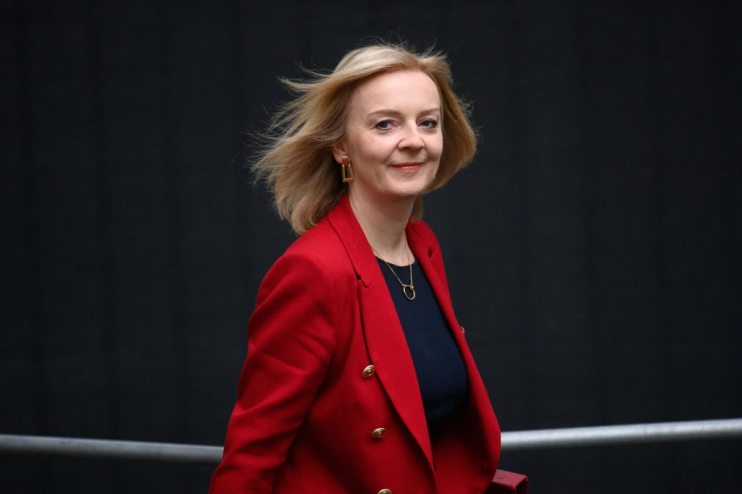Truss’ China truth-telling has done us all a favour

One of the simpler but more important truths about dealing with authoritarian regimes is that they respect only strength and resent truth-telling. By those measures, Foreign Secretary Liz Truss is outpacing her peers with a refreshing show of rhetorical honesty and hard-nosed realism, especially on the greatest threat the free world faces: Communist China.
Here is Truss on trade with Beijing: “it’s important that we don’t become strategically dependent.” On the Aukus submarine deal, a clear response to Beijing’s unprovoked aggressions: “Freedoms need to be defended”. On democracy promotion: “Either we retreat and retrench in the face of malign actors. . . or we club together and advance the cause of freedom.” Indeed.
Meanwhile, back in Washington, the U.S. State Department is softening its language and pulling punches. Gone are references to “General Secretary” Xi Jinping and “Communist” China, even though that’s the phraseology used inside China itself, by Chinese people. (As was “Wuhan virus,” but I digress.) The Biden Administration has agreed to multiple high-level meetings with Chinese counterparts in exchange for nothing, sliding back into Beijing’s preference for useless “dialogues” that tacitly excuse its bad behavior.
None of this is productive. Far better to follow Truss’ tack: spark a spirited and honest debate about the nature of Beijing’s totalitarian regime and how the free world is going to deal with it. It’s not an easy question, nor are there easy answers. Communist China is not the Soviet Union, which isolated itself from capitalist nations. For decades, the West has tried to integrate China into the international trading system, in the vain hope greater prosperity would induce a more liberal political system.
No serious observer thinks such an outcome is possible now. If they did, the basic truths on show during the pandemic should’ve put those hopes to rest. China was the birthplace of the virus; Beijing covered up its spread, disappeared critics, refused US offers to help contain it, and withheld PPE exports. The Xi regime then used its homespun vaccines as a weapon to buy fealty from nations who needed the jabs. This is not the behavior of a responsible member of the international community, such as it is. Millions have died and many more have lost their livelihoods.
Beijing’s trade practices have hardly been any more honorable. It’s taken decades for the US, UK and other great trading nations to acknowledge that it’s unfair to allow the world’s second-largest economy and a manufacturing superpower to flout rules on property rights, dumping, and state-backed financial support. You wouldn’t need guanxi to do business if China had a stable and predictable rule of law.
Then there is the uncomfortable fact of the crimes against humanity and genocide against Uyghurs in Xinjiang in case religion poses a threat to the one-party state. A regime that doesn’t trust its own people can’t be trusted to fulfill its commitments to foreigners.
The free world is still in the early stages of grappling with the complex threat of China. It is impossible to heed simplistic cries to simply “decouple.” Our corporate chiefs have been encouraged for decades to sink capital into the mainland, creating complex supply chains that aren’t easy to rip out and replicate. Government hasn’t set many red lines on most investments in China, and corporate chieftains and politicians are often co-opted by CCP campaigns and promises of future profits. Perhaps Truss could deal with this problem next?
Nothing is more powerful in foreign policy than an honest assessment of threats and the assertion of what our national interests, as free nations, are. Beijing certainly hasn’t welcomed Truss’s plain talk, with a Chinese embassy spokesman lecturing her after pro-Taiwan comments to “refrain from creating new obstacles for the development of the China-UK relationship.” No better evidence that she’s on the right track.
